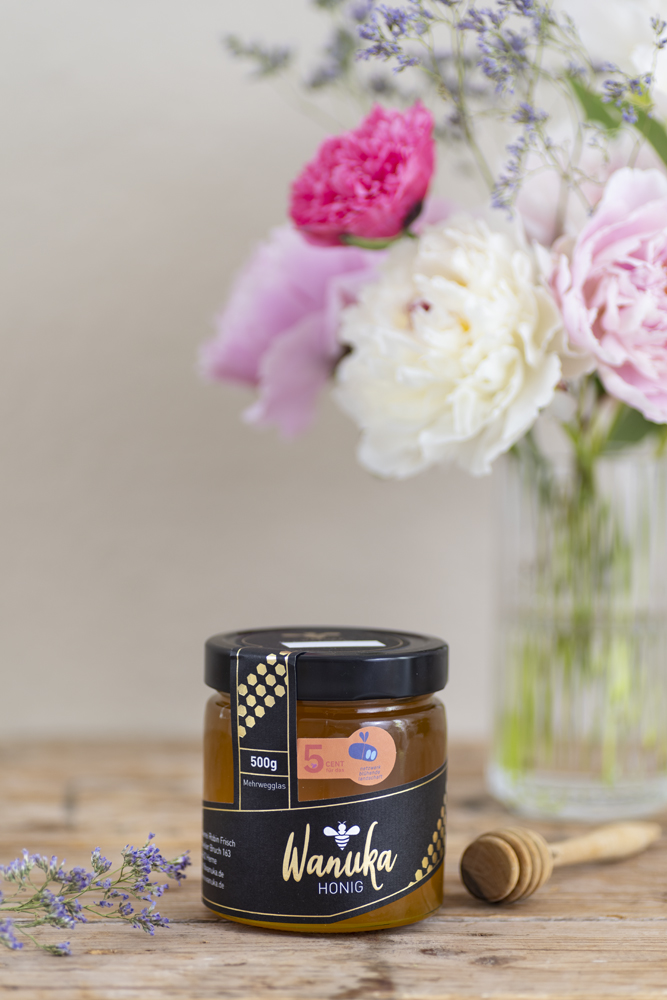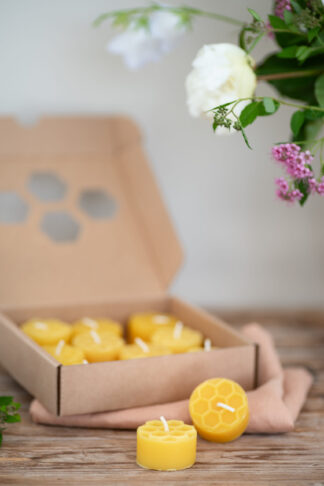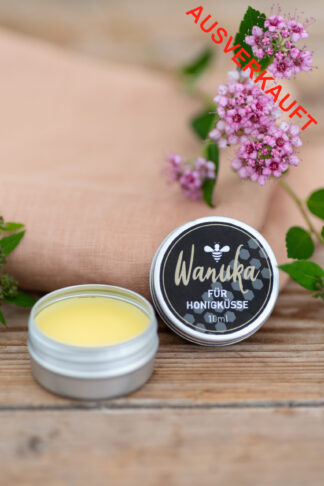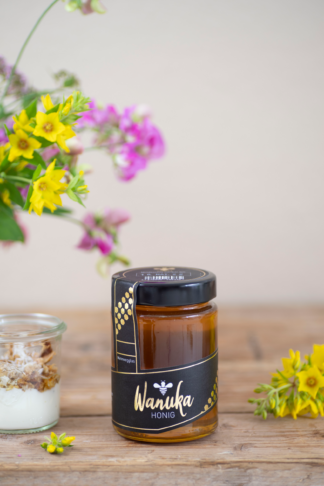Description
Wanuka premium city honey 500g
Description
Wanuka Premium City Honey is collected by our bees in Wanne-Eickel. It is created from the city’s diverse nectar supply: from gardens, parks and balconies to flower strips and traffic islands. Each harvest is unique – shaped by the weather, flowering season and variety of plants.
Origin & specialty
Our bees collect their nectar exclusively in the region. The honey is extracted cold, not heated and not mixed with honeys from other countries. This ensures that the character of each season is fully preserved.
Taste & consistency
The taste ranges from sweet to strong, depending on the harvest, and the color varies from golden yellow to amber. Each batch is slightly different, which is what makes our city honey so special. With a water content of around 16%, it has matured in the hive for a long time and is particularly aromatic.
Processing & packaging
Our honey is carefully harvested, finely filtered and bottled in the distinctive Wanuka jar. We do not use any additives or artificial processing.
Sustainability & commitment
Every jar you buy supports our urban beekeeping in Wanne-Eickel. We are also involved in the
Note
Honey is a natural product. Crystallization is a normal process and a sign of quality. If necessary, honey can be liquefied again in a water bath up to max. 40 °C. Not suitable for children under 1 year of age.










Reviews
There are no reviews yet.